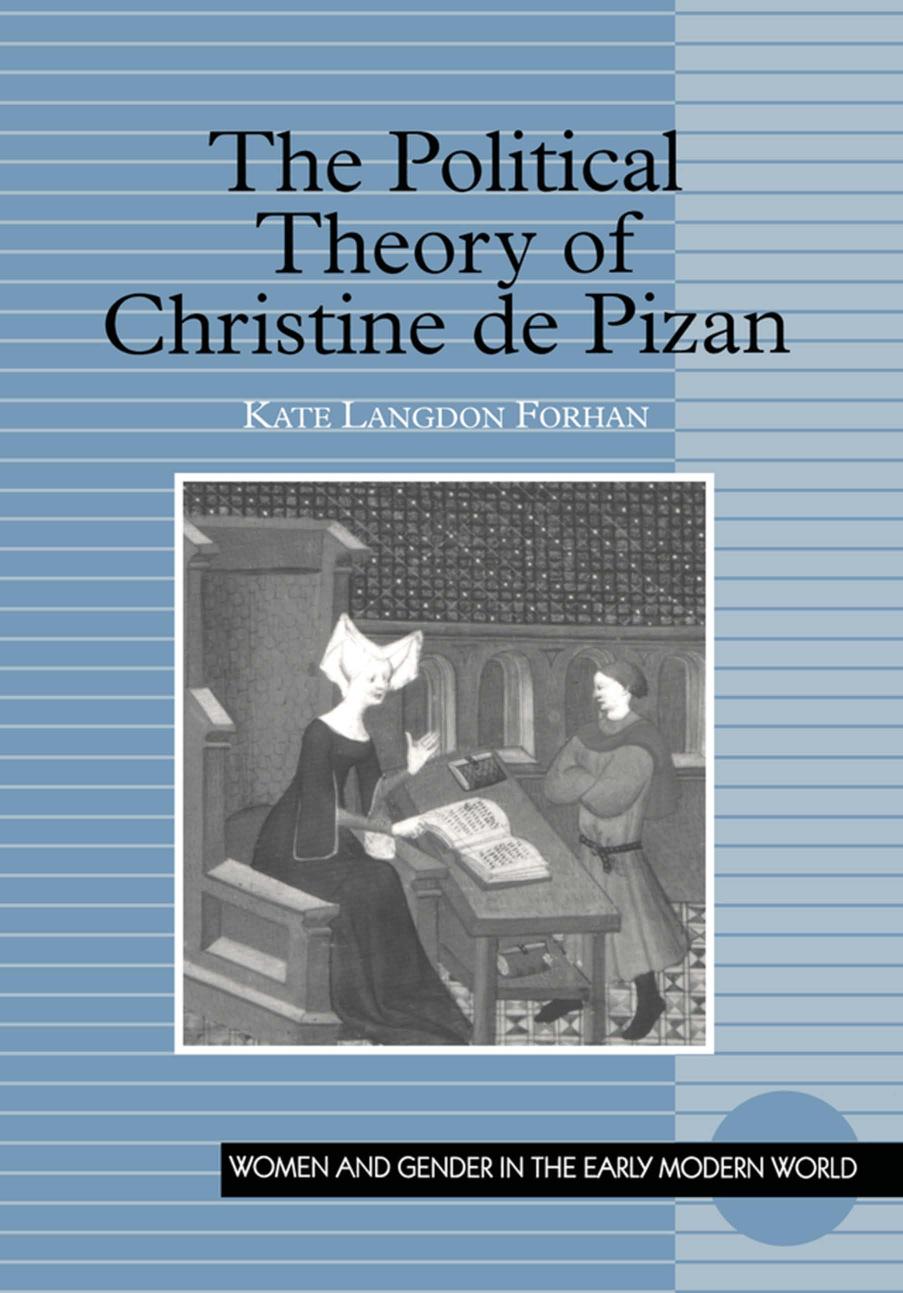Product desciption
The Political Theory Of Christine De Pizan Kate Langdon Forhan by Kate Langdon Forhan 9780754601739, 9780754601746, 9781315237732, 0754601730, 0754601749, 1315237733 instant download after payment.
Few medieval or Renaissance political writers, male or female, wrote more works on politics than Christine de Pizan; none of them addressed audiences so varied in class or gender. Yet until now there has been no comprehensive full-length study of Christine de Pizan's political thought. With The Political Theory of Christine de Pizan, Kate Forhan rectifies this oversight, situating de Pizan in the history of political thought while discussing traditional concerns of political theorists, such as justice, obligation, law, equality, and just war. Forhan also addresses the question of whether Pizan's work is original or derivative; whether she is a theorist or "merely" a political writer. Between 1400 and 1429, at a time of great civil strife in France, Christine de Pizan wrote ten books for the instruction and guidance of those engaged in political life. Her theory is focused on a "politics of inclusion," which validates the essential contribution of each member of the body politic to the whole, despite socially and politically mandated difference of class, nationality, and gender-ideas not without significance to the modern era. As Forhan demonstrates through analysis of her work, the thought of Christine de Pizan has true relevance for modern times. First, hers was a society in transition: new class structures, new occupations, and new aspirations were appearing behind the crumbling structures of the late medieval world. Secondly, Christine de Pizan was an outsider; a woman in a world dominated by men, an Italian in France, a member of the "meritocracy" at a court that was rigidly hierarchical. Her "difference" gave her the perspective to observe her society objectively. Her personal vulnerability allowed her to see politics more clearly, as those who are most vulnerable might see our own. Thirdly, she was a shrewd observer in a country that was emerging as a nation-state, where new concepts and practices of law, justice, administration, and politics in general were in the process of development. This book will be of interest to political theorists and political scientists; medieval historians; historians of women and gender; and scholars of comparative literature.


